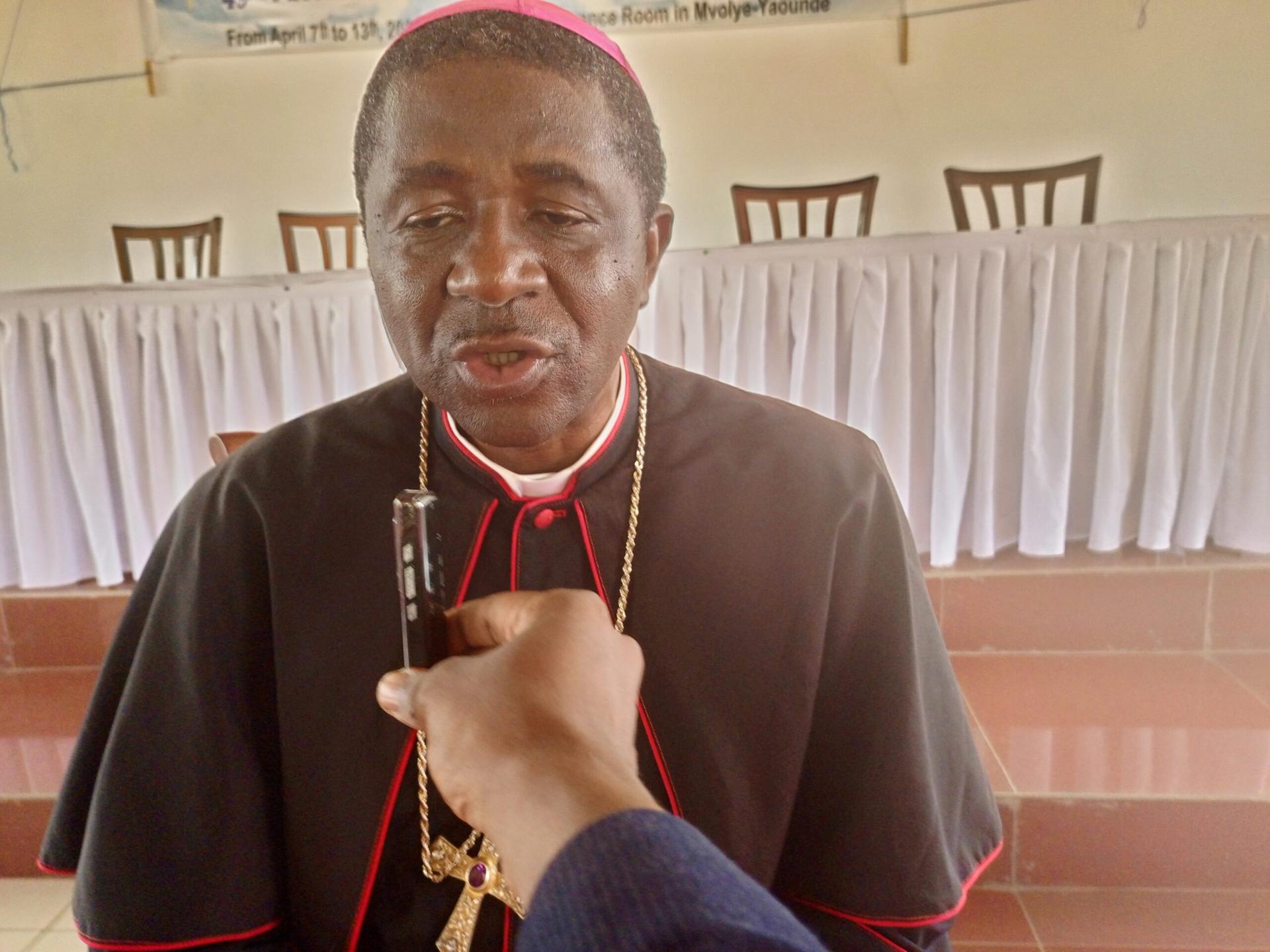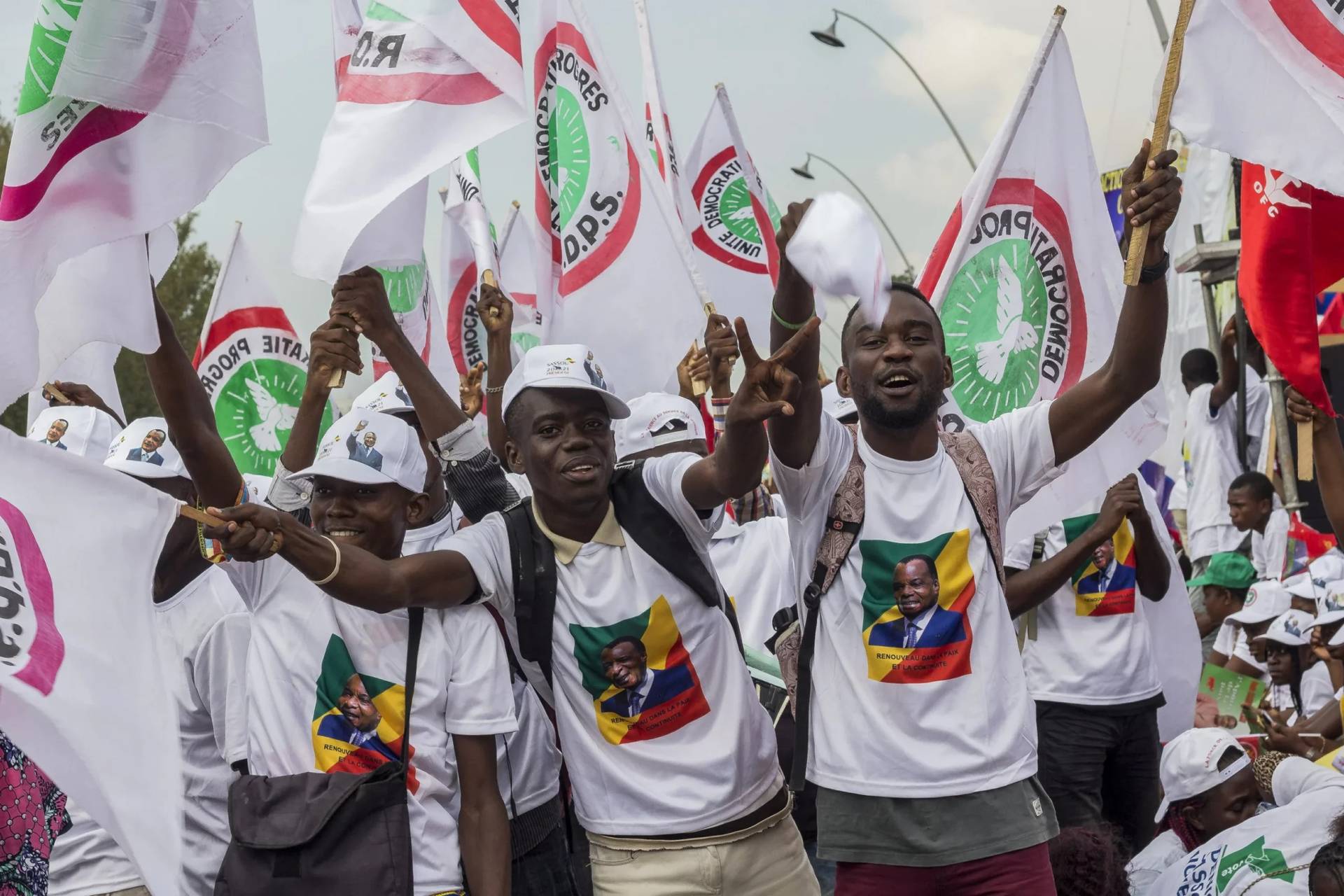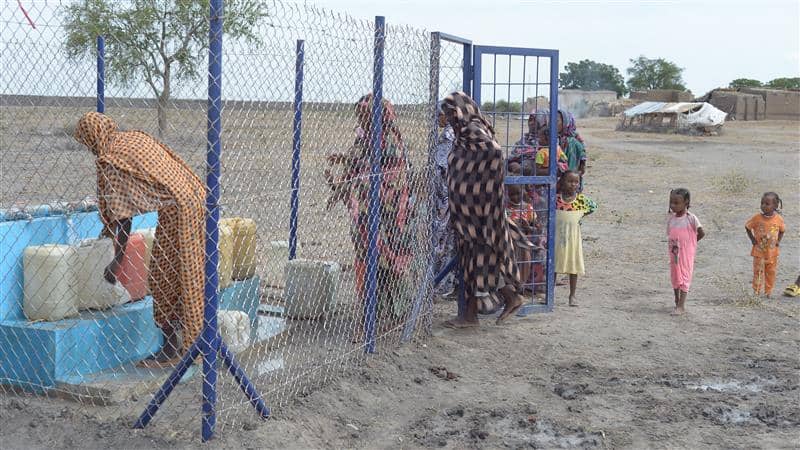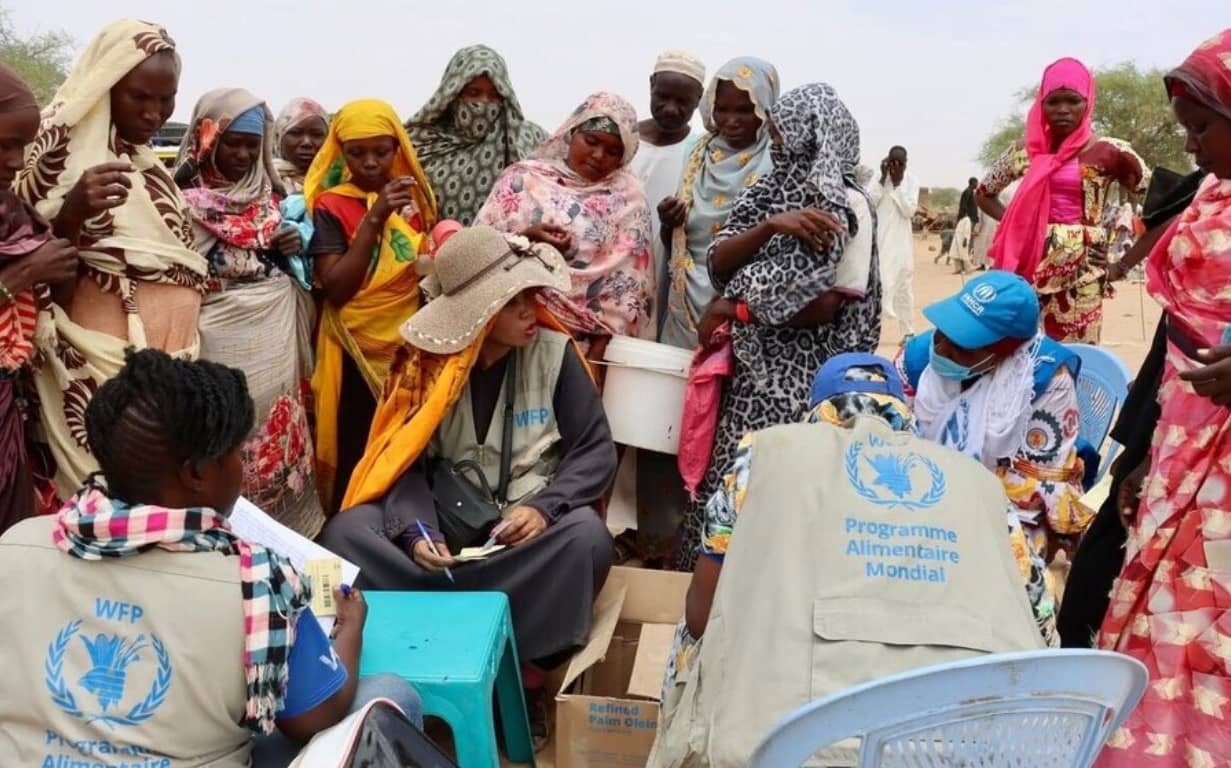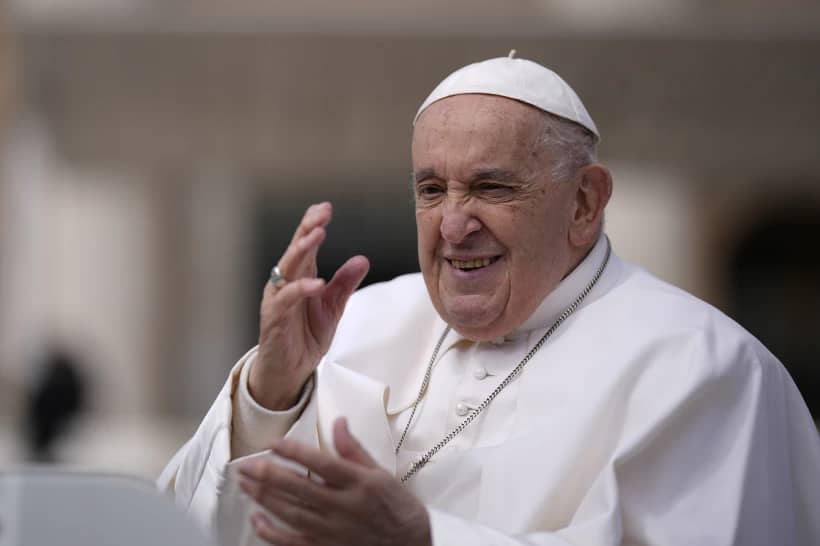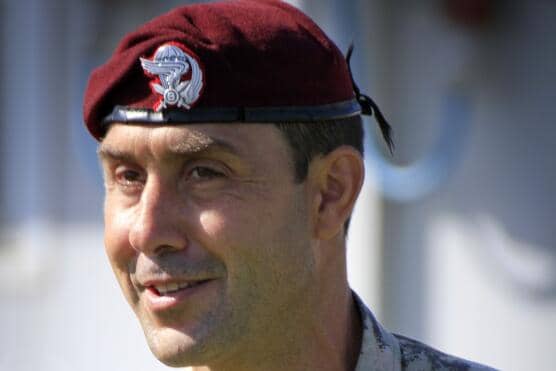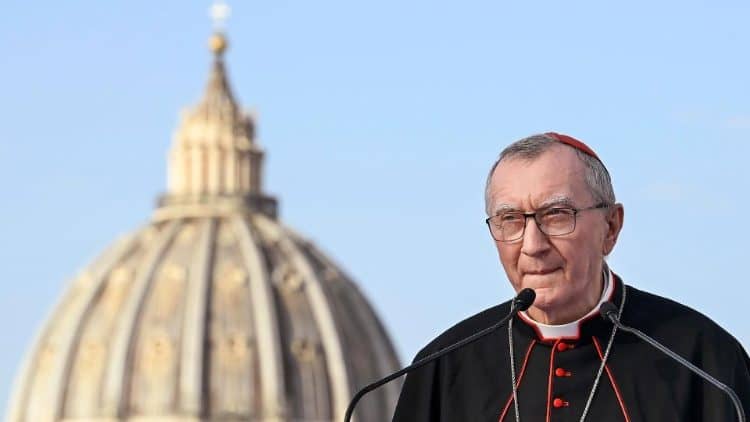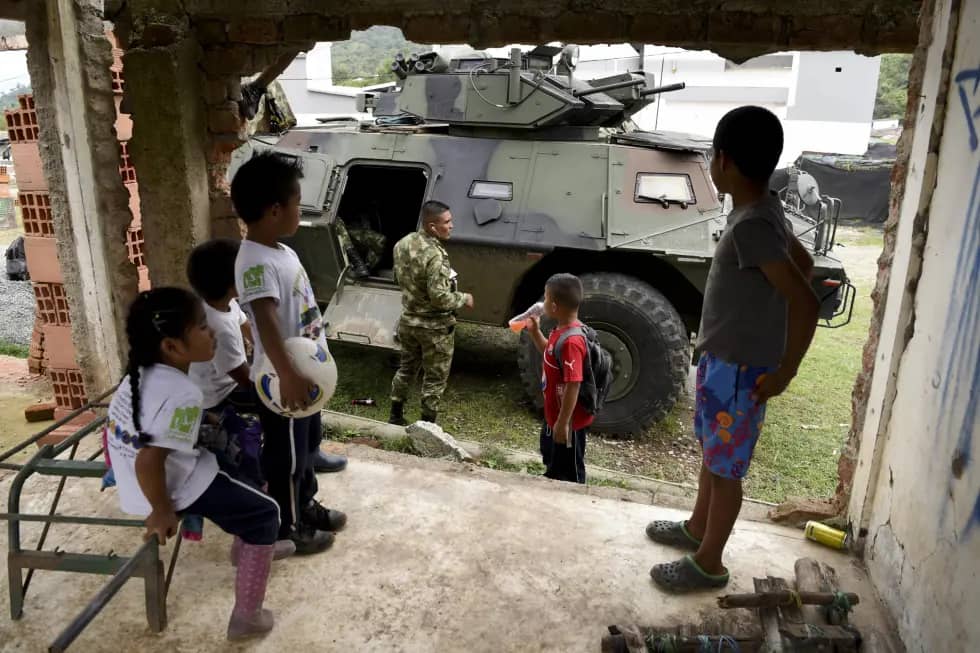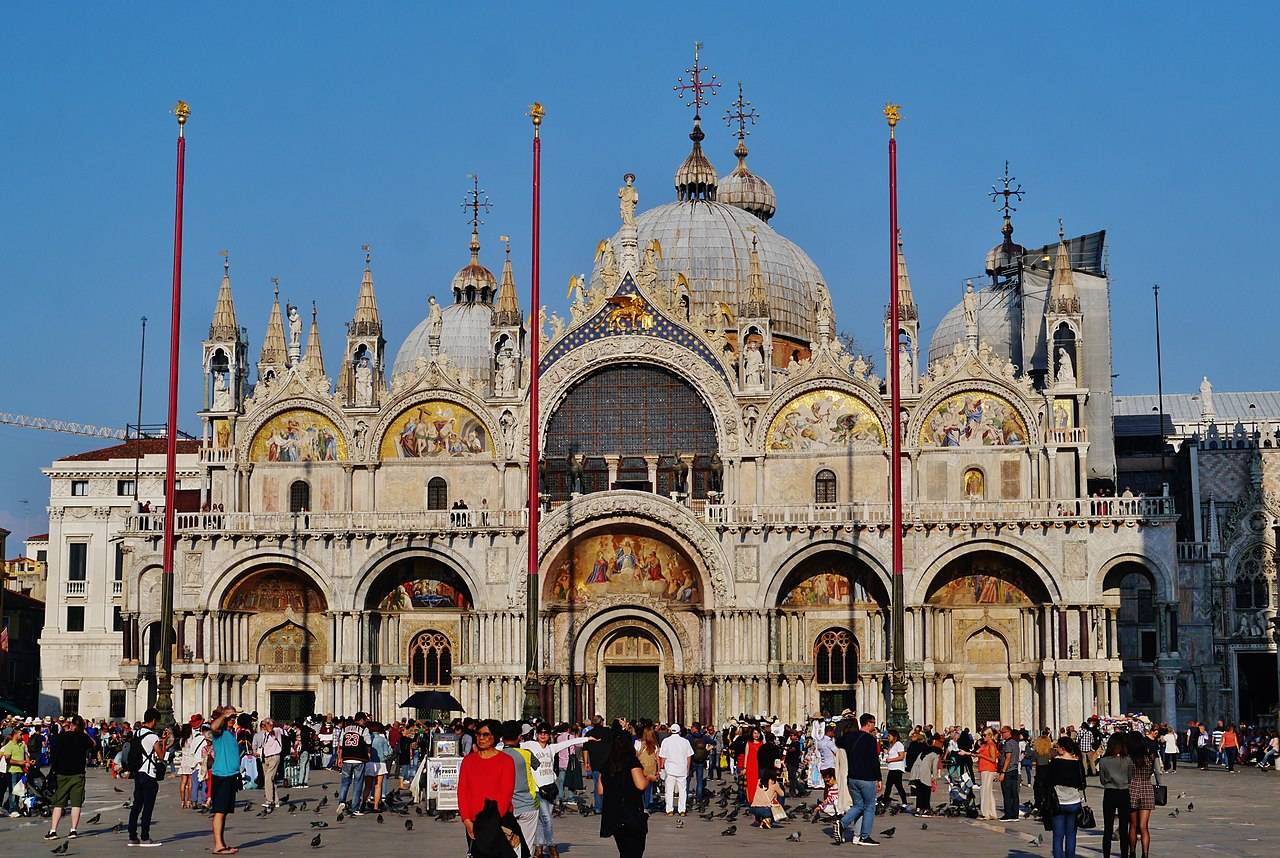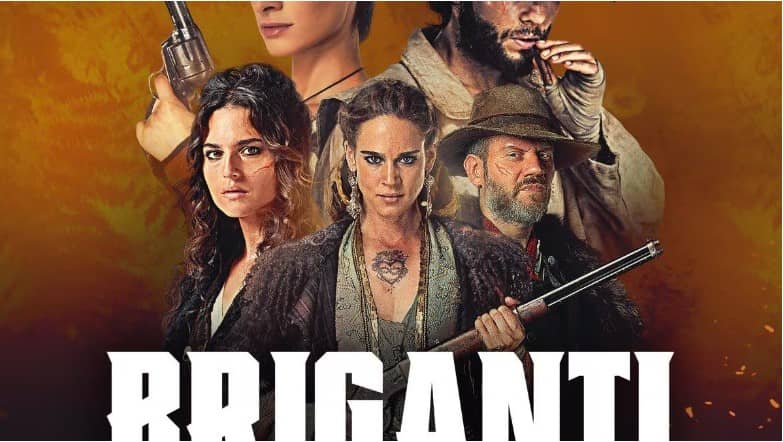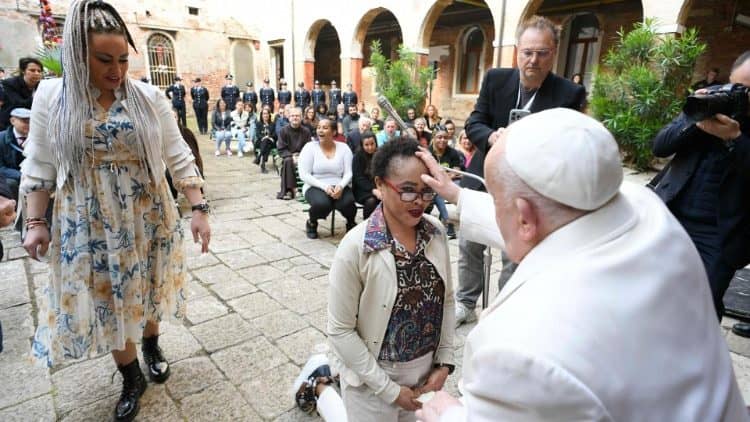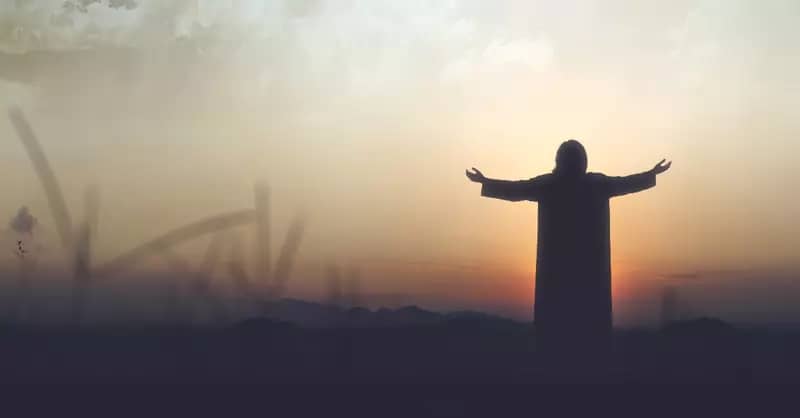YAOUNDÉ, Cameroon – Catholic bishops in Cameroon have begun meeting in their 49th plenary session in Yaoundé. The bishops are dissecting the socio-cultural life of Cameroon-ranging from security and resource management issues to the 2025 presidential election.
In an interview with Crux, the President of the National Episcopal Conference and archbishop of Bamenda, Andrew Nkea Fuanya, talks about the broad range of issues, and notes that peace is gradually returning to the country’s embattled English-speaking regions.
Following are excerpts of that conversation….
Crux: How healthy is the Church in Cameroon?
Nkea: I would say that the Church in Cameroon is very healthy. Our seminaries are full. Our Churches are full.
The 49th plenary is holding at a time when there was an attack on the Marian Shrine at Nsimalen. What is the reading of the Church regarding that?
This is a very good sign for the Church to tell us that the Church is doing well and the devil is angry. If nothing was happening, we would know that we are complacent, but when the Church is being attacked, it’s a very good sign that the Church is on the right track. And we will continue to hammer our teaching and our doctrine in season and out of season. The devil can go to Jericho.
What are the issues preoccupying you in this Plenary Assembly?
First of all, I am wishing a happy Easter to all Cameroonians. We are here to reflect on the situation of the Church which is in Cameroon, but also to reflect on the socio-political and cultural situation of the country and the problems facing the Church.
The bishops have touched on several issues including the issue of the cost of living. Do you find it affordable or as harsh as the fasting period?
During the Lenten period, we fasted so much, asking Jesus to give us the courage to live in this country, Cameroon. As you well know, the cost of living has become extremely high for the ordinary Cameroonian. It worries us, because we can’t continue to live like that. The cost of living continues to rise and salaries are not being raised, money that gets into the pockets of Cameroonians is not rising. So it preoccupies us.
The second thing is, we are also concerned about the security situation in our country, not only in the North West and the South West, not only in the north of the country but also in the country’s major cities of Yaoundé and Douala. There is so much insecurity in these cities. So we are reflecting on what should be done to address the problem of insecurity in this country.
One issue the bishops are also looking at is the next election – the 2025 Presidential election. What kind of message do you have for the Cameroonians ahead of that election?
I am not only the president of the Bishops Conference; I am also the President of the Justice and Peace Commission of the Bishop’s Conference. We just had our meeting and we identified three stages: The first step – the pre-electoral stage is to sensitize all Cameroonians to register and vote. The second stage is to observe the election … the election has to be transparent, free and fair everywhere in Cameroon. The third stage will be to evaluate the election.
So we will work to make sure that these steps are respected so that we get the best results in the next elections.
We just witnessed an election in Senegal where a 44-year old man is now the country’s president. Is Senegal speaking to Cameroon?
Senegal is speaking to Africa, not just to Cameroon. We have to be open to what the spirit of God wants to do among us. We keep insisting, those who want to be elected, go and register. Those who want to elect, go and register because if you don’t register and you don’t vote, then you cannot change the destiny of your country.
What happened in Senegal is a generational break. We see a 44-year-old man ruling the country today. In Cameroon, the leaders are octogenarians and nonagenarians. Would you like to see that kind of change in Cameroon?
I am a democrat. I go for the choice of the people. What the people want should prevail, and therefore, whether the people want the young or the old, their wish should prevail.
And closely linked to the issue of elections is the question of security. You come from the North West region where war has been raging for the past seven years. What is the situation on the ground?
The situation in the North West is relatively calm. We have a very good administration in the North West which is trying to keep the people together. People have gone back to their jobs, schools have reopened and businesses are going on. However, it isn’t the same thing in the periphery. For instance, we have just finished a one-month lockdown between Batibo and Mamfe. That is terrible. The road to Mbengwi is still locked for one year. So we still have all these peripheral disturbances which make life in the North West very difficult. But on the whole, things have become better.
You have described yourself as an apostle of peace, but there are others who think that you can’t have peace without justice.
I completely disagree. You can have peace and you work for justice. There is a lot of injustice in the United States of America. They are not fighting and killing each other. Through Congress and through the instruments of the law, they are fighting for justice.
So I completely disagree with those who think that there can be no peace without justice. Peace means that we understand ourselves: I respect you, you respect me. At the same time, we use the instruments of the law to make sure that there is justice.
Since this war in the North West and South West, thousands of people have been killed. Have we arrived at justice? And therefore, wherever there is justice, there are still people who are disgruntled. You can never satisfy everybody. And therefore if you talk about justice in terms of satisfying everybody that can never happen anywhere in the world. That can exist in heaven, not on earth, and even in heaven, Lucifer still rebelled.
Within this conflict, Church leaders have been paying a heavy price. Priests and Bishops have been kidnapped, some have been killed. Why are Church leaders who only want peace a target in a purely political conflict?
There are two reasons. The first is that we refuse to take sides. We cannot identify with any side, and once you refuse to identify with any side, they call you an enemy. We are pastors. We like to stand in between to reconcile people. I cannot come out and say that I stand for Ambazonia [Editor’s Note: The name proposed by the Anglophone separatists in west Cameroon], because I am also the pastor for Christians who are not for Ambazonia. I cannot antagonize my Christians and I have no guarantee that the government of Ambazonia will be better than the government of Cameroon.
Therefore, I stand for reconciliation and peace among the people. The second reason is because they think that the Church can give them money. The Church has no money. I have said that if you kidnap any priest and you ask me for ransom, you would rather kill him because I have no money to give and therefore to kidnap a priest is bad business.
And there is also the issue of natural resource management that the bishops are addressing in this plenary?
The Holy Father himself spoke about natural resource management during his visit to the Democratic Republic of Congo. On several occasions we have spoken out about this issue. Let me give you an example. Yokadouma in the east region is one of our poorest dioceses, but that locality is home to significant quantities of natural resources. So we are pushing to see that the people of this locality get some benefits from those natural resources. It is very important for peace in our country.
Cameroon has been suspended from the Extractive Industries Transparency Initiative, EITI .How does that strike you?
It’s very sad. Cameroon is a country endowed with a lot of natural resources. Yet, the economic situation of Cameroon does not reflect what God has given us as natural resources, and therefore we are calling on those who are in charge of this sector to ensure that the natural resources of our country are put at the disposal of every Cameroonian and that we take our place at the EITI.
What is the danger if natural resources are not properly managed, if they are not benefiting people?
It heightens corruption and it heightens the anger of the people because the people do not see the benefits of what they see that exists in their territory, and this can lead to very dangerous consequences.
You have equally spoken out about what you call values that are foreign to Africa.
Yes. Africa must be the author of its destiny. We have gone beyond the level where Europe has to dictate to us. It’s the same thing with the Church. No one has the right to impose on us things that go contrary to our culture, and against the teachings of the Catholic Church. We will never accept to be influenced by this European culture.
But that sounds like standing against people’s right to love whom they chose, at least from the perspective of Europe.
God was not an idiot to make people male and female. The book of Genesis tells us that ‘male and female, He made them,’ and that is why a man leaves his father and his mother and joins his wife and the two become one. If a man and a man can produce anything natural, I will support them, but if a man and a man cannot have any end result of natural reproduction, it is against nature. Dogs have never done this. The human being who is endowed with reason, doing this is perversion.
The pope seems somehow open to accepting these homosexual unions. In the Catholic hierarchy, can a bishop say no to the pope?
We were in the synod for one month with the Holy Father. This issue of homosexual unions came up and we put it to vote. And we voted against it. And in the final document, LGBTQ came up. We put it again to vote and we voted against it. That is why LGBTQ does not appear in the final document of the synod. Two months after the Synod on Synodality, the Cardinal Prefect of the Doctrine of the Faith publishes Fiducia Supplicans and says we can bless homosexual unions. That is why we were very immediate to say no because it has a history.
Guinean Cardinal Robert Sarah is attending this plenary and the other day he ordained twelve priests in Obala Diocese. Statistics show that seminaries are running empty in Europe and the Americas, but filling up in Africa. Why is that?
Seminaries are getting full in Africa because this is our time. After the Second World War, most of the seminaries in Europe were full. And bishops were ordaining 80-90 priests at once. This is the time of Africa. Africa is a cultural continent where religious beliefs of Christianity correspond to a great degree with the cultural beliefs of our people, and therefore our seminaries are getting full now. After the Second World War, Europe sent a lot of missionaries to Africa. Now is the time for Africa to send missionaries to Europe and the Americas.
To evangelize Europe?
To evangelize and we are doing that.
What is wrong with Europe?
Too much money and too much freedom. They have too much money and they think that they don’t need God anymore. Secondly, they have too much freedom. Freedom has to go with limits, and the freedom of one man begins where the rights of another man ends and now, they are not talking about any rights in Europe, they are only talking about freedoms. That is where Europe has made a mistake.
